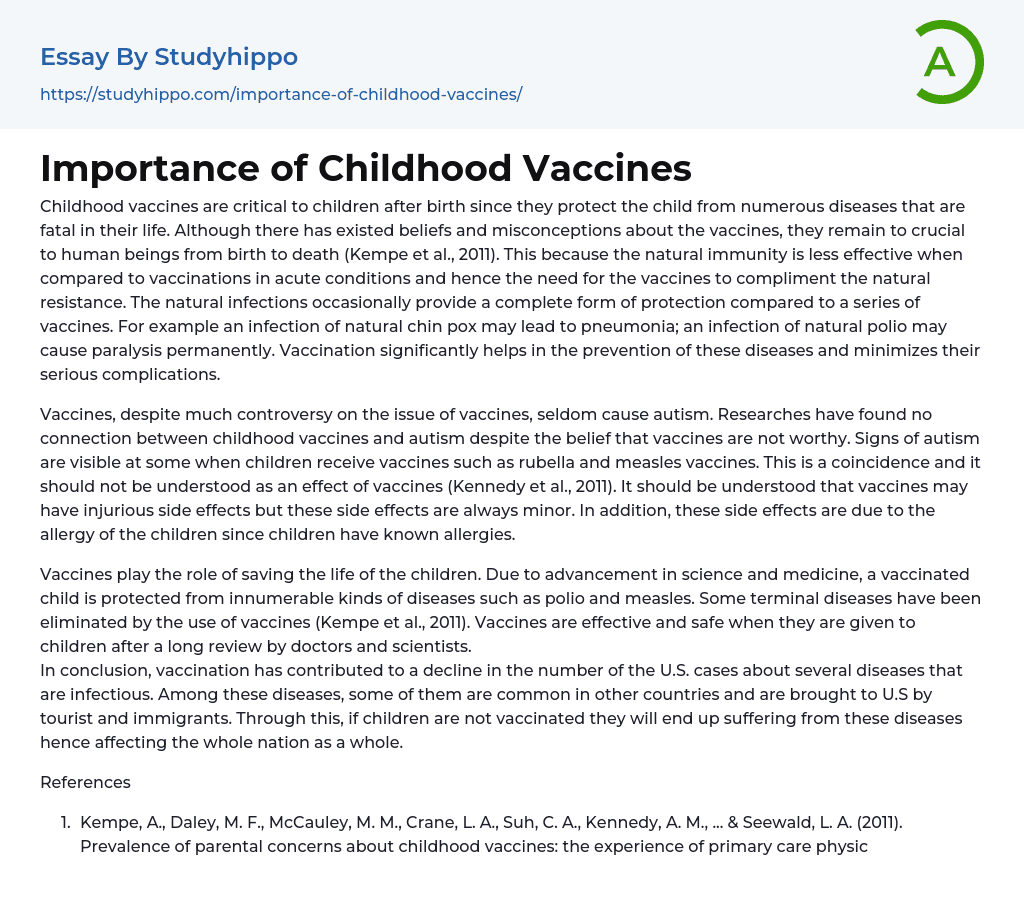Childhood vaccines are crucial for safeguarding children against life-threatening illnesses, and they remain essential from infancy through adulthood (Kempe et al., 2011). Although there are certain beliefs and misconceptions surrounding them, these vaccines play a vital role in preventing acute conditions more effectively compared to natural immunity. Nonetheless, it is worth noting that occasional instances may arise where natural infections provide superior protection over multiple vaccine doses.
Contracting the natural form of chin pox can lead to the development of pneumonia, while contracting natural polio infection may result in permanent paralysis. However, receiving vaccination significantly helps prevent these diseases and reduce their severe complications. Despite controversy surrounding vaccines, there is little evidence linking them to autism. Extensive research has disproven any scientific support for a link between childhood vaccines and au
...tism, discrediting the claim that vaccines are ineffective. Some people mistakenly associate signs of autism appearing after children receive rubella and measles shots with the vaccination itself; however, this is purely coincidental and not caused by the vaccines (Kennedy et al., 2011).
While vaccines can have minor negative effects in children with known allergies, it is vital to appreciate their significance in safeguarding children from diseases such as polio and measles. The advancement of science and medicine has even led to the elimination of certain deadly illnesses (Kempe et al., 2011). Vaccines are proven to be effective and safe after thorough evaluation by medical professionals and scientists prior to being given to children.
In summary, vaccination is crucial in reducing the occurrence of infectious diseases in the United States. These diseases are often prevalent in other countries and can be brought into the US by tourists and immigrants
If children are not vaccinated, they become vulnerable to these diseases, which can have a negative impact on the entire nation.
References
- Kempe, A., Daley, M. F., McCauley, M. M., Crane, L. A., Suh, C. A., Kennedy, A.
M., and Seewald, L. A. (2011). The prevalence of parental concerns about childhood vaccines: primary care physicians' experience.
The American journal of preventive medicine, volume 40, issue 5, pages 548-555.
- Health Care Provider essays
- Hospital essays
- Physician essays
- Universal Health Care essays
- alternative medicine essays
- Aspirin essays
- Cannabis essays
- Cardiology essays
- Cloning essays
- Dentist essays
- drugs essays
- Hemoglobin essays
- Medical essays
- Medical Ethics essays
- Organ Donation essays
- Patient essays
- Pharmacology essays
- Plastic Surgery essays
- Surgery essays
- Therapy essays
- Vaccines essays




